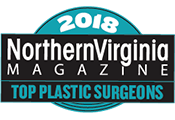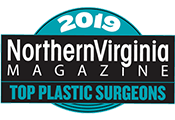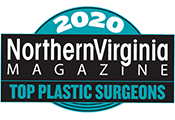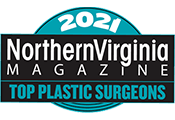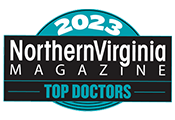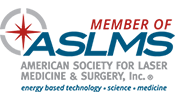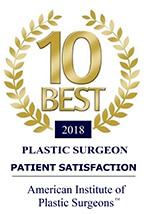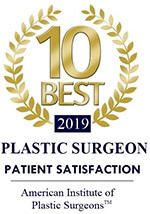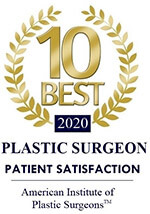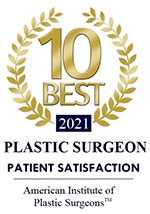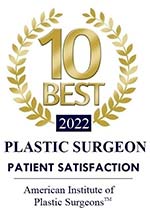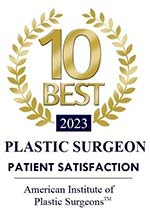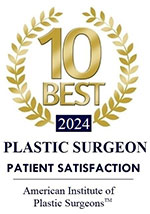Is Dr. Scott an eyelid plastic surgeon or an ophthalmologist?
The answer is both! Dr. Scott originally trained and became board-certified in ophthalmology and then did special fellowship training in eyelid plastic surgery. Dr. Scott has been performing eyelid plastic, laser and eyelid reconstruction surgery for over 25 years. After his fellowship training, Dr. Scott received further specialty training in a multitude of additional facial rejuvenation procedures such as facial fillers, Botox, chemical peel, microdermabrasion and medical skin care to improve your appearance and reduce the natural pattern of facial aging.
Does Dr. Scott see any general ophthalmology patients?
Unfortunately, no. Dr. Scott, director of Eye Plastic Associates, has isolated his care to eyelid plastic surgery, laser eye surgery and eyelid reconstruction surgery combined with in-office facial rejuvenation procedures.
Does Dr. Scott perform cosmetic eyelid surgery?
Yes. Dr. Scott is fellowship-trained in eyelid plastic surgery and performs upper and lower cosmetic laser eye surgery along with fractional laser resurfacing every week on an outpatient basis.
Does Dr. Scott perform procedures in the office?
Many of the facial rejuvenation procedures can be performed in an office setting. Procedures such as eyelid tumor surgery, tear duct evaluations, facial filler injections, Botox, chemical peel and microdermabrasion can be performed in our Fairfax office.
More advanced procedures, such as an upper and lower blepharoplasty surgery, are performed on an outpatient basis at the adjacent Fair Oaks Hospital out patient surgery center.
Is there a consultation fee?
For patients who come in for a consultation with a diagnosed condition that is deemed to be a medical problem, the visit would be billed to your insurance. If Dr. Scott does not directly participate with your insurance, you would be expected to pay at the time of your visit for your examination/treatment and our office will then bill this to your insurance company and they would reimburse you based on your individual insurance plan.
If the examination is deemed to be a cosmetic consultation, there would be $195 fee for the consultation that could subsequently be applied to any in-office or outpatient procedure performed during the next six months.
Does insurance cover eyelid surgery?
Yes, eyelid surgery is frequently covered by medical insurance companies when certain criteria are met. For instance, if the upper lid is droopy and will not open, a condition referred to as ptosis, then your insurance company may pay to elevate the upper eyelid. Additionally, if skin hangs over the upper eyelid margin and blocks your superior visual field, your insurance may cover upper eyelid laser blepharoplasty to remove the redundant tissue.
In each case, the requirements and specifics are dictated by your personal insurance. Dr. Scott and his staff can assist you in determining whether your condition is likely to be covered by your insurance. In the case of lower eyelids, if someone is bothered by bulging lower lids from fat herniation, the surgical correction for this problem is essentially never covered by insurance. Other conditions, including ectropion, entropion, tear duct obstructions, eyelid tumor or cancer, are all typically considered medical conditions and are covered by your insurance. Again, the final determination is made by your insurance company and if there is a question as to coverage, Dr. Scott and his staff would be happy to check with your insurance company to make this determination once you have been seen in consultation so the full extent of your condition or conditions is known.
How much do you charge for upper or lower eyelid laser blepharoplasty surgery, Botox, Juvederm, Restylane, chemical peel, etc.?
The specific charge for each of these procedures can vary based on the extent of the surgery and or how much product is used or what area(s) are being treated. Dr. Scott his staff would be happy to give you a detailed breakdown of any and all charges once you have been seen in consultation and a facial rejuvenation evaluation has been completed.
When can I go back to work?
Most patients feel that their vision is clear enough to start to do some visual tasks after two to five days following surgery; however, this can range widely based on the complexity of the surgery. With more active postoperative care, such as fractional laser resurfacing, an individual may not feel comfortable returning to work until a full two weeks after their surgery. If your job involves heavy straining or lifting, your return to work could be as long as three weeks.
How long will I have bruising and swelling after surgery?
This can vary greatly depending upon the intricacies of your surgery. It can be as little as a few days to as long as two or three weeks and occasionally longer. To speed your recovery, after certain procedures Dr. Scott recommends the use of Arnica, Bromelain and vitamin C to reduce bruising and swelling and to assist in new collagen formation.
When can I drive after surgery?
Restrictions on driving are directly based on the complexity of the procedure being performed and the likelihood of any blurred vision postoperatively. Small eyelid tumors being removed from the lower eyelid would not likely result in any driving restriction. However, an upper and lower lid blepharoplasty surgery with fractional laser resurfacing could result in a driving restriction of five to six days. In general, a good rule of thumb is to personally assess your clarity of vision and never drive if you feel impaired. As always, feel free to ask Dr. Scott for more details during your consultation.
Can I drive myself to get my sutures removed?
In most cases, patients have healed sufficiently and their vision is clear enough to drive to their appointment to have their sutures removed. For additional information, please see the answer to, “When can I drive after surgery?”
Can I exercise after outpatient surgery?
A general rule of thumb during the first week after surgery is to pretend you have a “bad back” and do not make any aggressive movements.
After one week, you can do the equivalent of “mall walking” with minimal straining and without increasing your heart rate.
After two weeks, you can increase your walking pace and you can perform light exercises.
After three weeks, you can return to full activities. However, the first time attempting full exercise watch for any evidence of swelling or discomfort. If this occurs, reduce the intensity for at least another week.
It is best to keep your “head above your heart” at all times during the first two weeks after surgery.
Can I wear contact lenses after outpatient surgery?
Contact lenses can be worn at three weeks after the date of your surgery. You should increase your wearing time as tolerated. With certain eyelid surgeries, your eyeglass prescription can change during the six- to eight-week postoperative period, so we suggest holding off getting new glasses during this healing phase.
Can I take a shower after eyelid surgery?
After 48 hours, you may shower and get your head wet. Prior to that, you can only shower from the neck down. If you’ve had outpatient surgery, it is best to wait to the following day to take any type of shower. After two days, you can get your head wet but you do not want the shower head aimed directly at your face. Instead, turn around and have the water hit the back of your head; this way, the water can spill over your head gently. After most procedures, it is best to shower this way for three to four weeks.
When can I wear makeup after surgery?
Any surgical procedure resulting in an external wound, such as a tumor removal or blepharoplasty with sutures, requires an avoidance of eyelid makeup for two to three weeks after the surgery. Mascara or other eyelid or facial makeup can get into the wound and permanently “tattoo” the wound to the color of the makeup. For further clarification, please ask Dr. Scott for additional details at the time of your consultation.
When can I shave my face?
Except for eyelid and cheek fractional laser skin resurfacing, men can shave their face the day following eyelid surgery. This is true for in-office facial rejuvenation procedures, as well. In the case of eyelid and cheek skin resurfacing, shaving may need to be delayed for a week to ten days. Dr. Scott can clarify these details at the time of your consultation.





